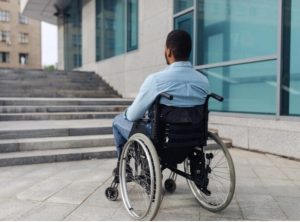
Credit: Peoples Gazette
Historically, corporal punishment was prevalent in Nigerian schools, perceived as essential for instilling respect, obedience, and good behaviour in students.
However, research has illuminated the adverse physical, emotional, and psychological effects of this disciplinary approach.
In Nigeria, the discourse on corporal punishment has endured for decades.
Recently, there has been a notable shift in perspective, with many advocating for its prohibition.
This transformation reflects an evolving understanding of the detrimental impact of corporal punishment on children’s growth and well-being.
The campaign to abolish corporal punishment has gained traction in Nigeria, buoyed by an increased recognition of children’s rights and the necessity for more constructive disciplinary measures.
Organizations such as the Child Rights Act have been instrumental in championing this cause, emphasizing the significance of positive disciplinary strategies.
Instead of corporal punishment, schools are urged to adopt positive disciplinary methods, including positive reinforcement, establishing clear boundaries, and teaching problem-solving skills.
These approaches not only address misbehaviour but also nurture children’s emotional and social development.
For example, in a landmark decision, the Lagos State government officially banned the use of corporal punishment in schools across the state.
This action is part of a broader initiative to encourage positive discipline methods and establish safer, more nurturing learning environments for children.
The ban, announced by the Lagos State Ministry of Education, prohibits teachers and school administrators from employing any form of physical punishment, including caning, or spanking. Instead, educators are encouraged to utilize positive discipline techniques such as dialogue, positive reinforcement, and conflict resolution.
The prohibition of corporal punishment reflects a growing awareness of its adverse effects on children’s development.
Studies indicate that corporal punishment can lead to heightened aggression, diminished self-esteem, and an increased risk of mental health issues.
By advocating for positive discipline, the Lagos State government aims to foster a more supportive and nurturing educational setting for all students.
Reasons for abolition
Peter Adebayo, a parent residing in Akute, Ogun State, Nigeria, has observed a profound impact on Nigerian society since the abolition of corporal punishment. He noted that children now feel safer and more respected in their environments, leading to improved academic performance and overall well-being.
“Moreover, the shift towards positive discipline has helped to create a more compassionate and empathetic society, where the rights of children are valued and respected,” he added.
Simeon Uche, another parent and guardian from Nigeria, believes that abolishing corporal punishment can break the cycle of violence and foster a more compassionate and nurturing environment for children to thrive.
He emphasized that this shift requires a collaborative effort from educators, policymakers, parents, and community leaders to ensure a safer and more supportive future for generations to come.
Adekunle Oluwola expressed the view that inflicting injuries on children does not necessarily correct them but rather toughens them and can lead to defiance towards the school and society at large.
Impacts
Despite the positive intentions behind the abolition of corporal punishment, observers of Nigeria’s education sector believe that there are still challenges to overcome.
They argue that some parents and teachers may cling to traditional beliefs about discipline, making it difficult to fully implement positive disciplinary methods.
Moreover, some individuals feel that the abolition of corporal punishment has rendered teachers powerless, as they no longer have authority over students.
This perceived loss of authority has manifested in students challenging their teachers in schools across the country. Instances of such confrontations have even gone viral on social media, drawing attention to the issue.
Conclusion
Analysts view the abolition of corporal punishment in Nigeria as a positive shift towards more compassionate and effective disciplinary methods.
By promoting positive discipline, Nigeria is not only ensuring the well-being of its children but also laying the foundation for a more just and empathetic society.
However, analysts also note that the abolition of corporal punishment in schools has both positive and negative implications.
What’s your thought on this story on corporal punishment?





















